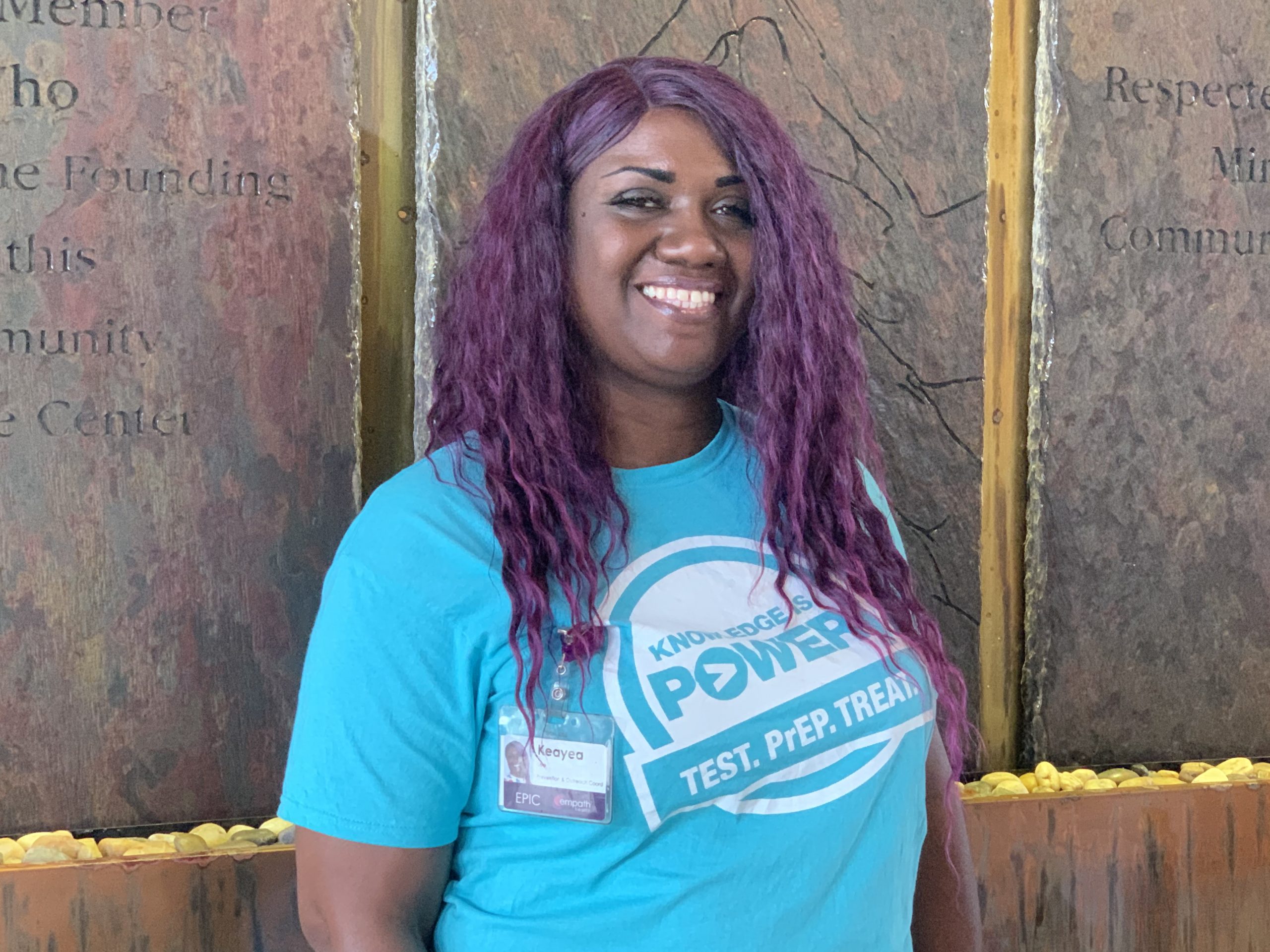
Keayea Allen, EPIC Prevention Coordinator
Within our community, HIV and sexually transmitted infections (STIs) continue to be areas of concern for public health.
According to the Florida Department of Health, the state continues to report some of the highest rates of new infections in the country, with Pinellas County servings as a major center of new cases. Of these new cases, the African American community is particularly affected.
“Here in Florida, 1 in 7 African American individuals will contract HIV,” explains Keayea Allen, prevention and outreach coordinator for Empath Partners in Care (EPIC), a member of Empath Health. “Having the opportunity to educate on prevention and treatment can really help reduce the fear, stigma and miseducation around this disease.”
As a resource to both patients and staff, Allen is on the front lines of community education and testing. Here are some common misconceptions she has heard in the community and the facts behind them:
Misconception: Condoms don’t prevent HIV.
Truth: When used correctly, condoms are actually one of the best ways to prevent HIV transmission, aside from abstinence. Condoms are also key in preventing STIs. New cases of HIV are slowly rising, STIs are increasing at an alarming rate.
“One of the main problems I see is a lot of the African American community, and the Caribbean community, don’t prefer to use condoms,” explains Allen. “And this is a part of why the number of STIs cases is skyrocketing.”
While STIs are treatable, they can open the door for opportunistic infections such as HIV.
Misconception: If I test positive for HIV, I won’t be able to afford treatment.
Truth: The fear of the cost of care often keeps people from getting tested. However, EPIC’s medical case management and outreach teams can connect clients with programs to help cover medication and other programs for fresh food, non-perishables and personal items and housing assistance.
Misconception: HIV will show on a test the day after sexual activity.
Truth: On average, it takes 21 days for HIV to appear on a test. For some people, it can take as long as three months. Testing frequency depends on each person’s lifestyle. Someone with multiple partners should be tested every three months, while someone with one partner and no condom usage should be tested every six months.
“Every time someone comes for testing, we offer education about HIV and prevention,” adds Allen. “Educating about HIV is an important part of ensuring people get tested properly and can start on the right medication at the right time – ultimately reducing transmission rates.”
Misconception: Because of COVID-19, testing isn’t available.
Truth: EPIC is continuing to offer screenings for HIV and STIs, with no appointment needed. We offer rapid testing for HIV which offers 99% accurate results in one minute. The entire process takes under ten minutes and is always confidential.
As a precaution for COVID, upon arrival all individuals will answer screening questions, have their temperature checked and will need to wear a mask before they can be tested.
Misconception: HIV is not treatable.
Truth: Medication is available to treat HIV, as well as to lower the chances of getting infected. With regular medication use, an HIV positive person can have an undetectable status and become unable to transmit it.
“HIV is a disease that can now be treated. As long as you work with your doctor and stay on your medication it is possible to live a long life,” says Allen. “We have individuals that were diagnosed young living to be in their 70’s and 80’s.”
